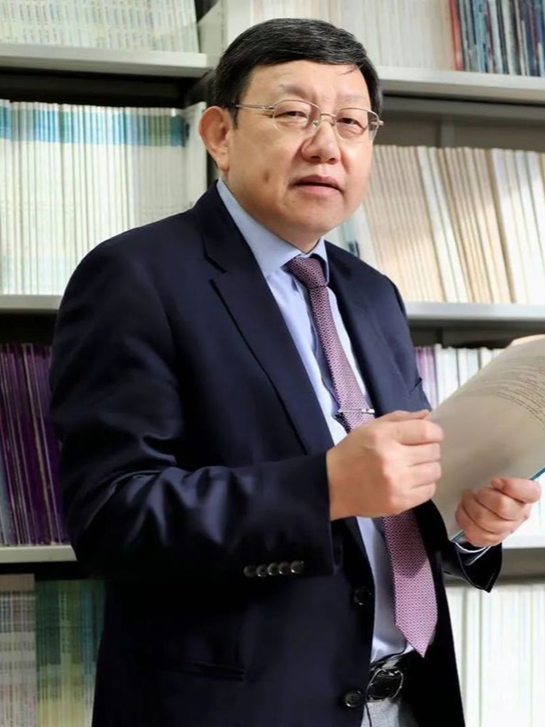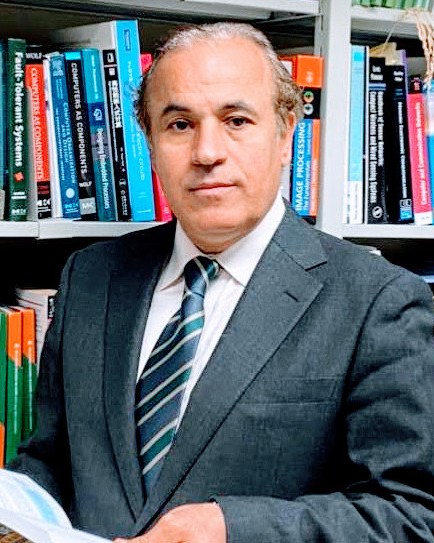 |
Prof. Mingcong DengTokyo University of Agriculture and Technology, JapanBiography: Prof. Mingcong Deng (IEEE Fellow) received his PhD in Systems Science from Kumamoto University, Japan, in 1997. From 1997.04 to 2010.09, he was with Kumamoto University; University of Exeter, UK; NTT Communication Science Laboratories; Okayama University. From 2010.10, he has been with Tokyo University of Agriculture and Technology, Japan, as a professor. Now he is the Chair of Department of Electrical and Electronic Engineering. Prof. Deng specializes in two complementary areas: AI & Operator based nonlinear fault detection and fault tolerant control design; System design on human factor based robot control. Prof. Deng has over 650 publications including 230 journal papers in peer reviewed journals including IEEE Press and other top tier outlets. He serves as a chief editor for 2 international journals, and associate editors of 6 international journals and he is the editorial board member of Engineering, the official journal of the Chinese Academy of Engineering. Prof. Deng is a co-chair of agricultural robotics and automation technical committee, IEEE Robotics and Automation Society; Also a chair of the environmental sensing, networking, and decision making technical committee, IEEE SMC Society. He was the recipient of 2014 & 2019 Meritorious Services Award of IEEE SMC Society, 2020 IEEE RAS Most Active Technical Committee Award and 2024 IEEE Most Active SMC Technical Committee Award. He is a fellow of The Engineering Academy of Japan. Speech Title: Learning & Operator Theory Based Nonlinear Control of Micro Hands Abstract: Learning & operator theory based robust nonlinear control design for nonlinear systems with uncertainties is shown. The relationship between operator theory and learning algorithms is discussed. Meanwhile, I will introduce support vector regression (SVR) with generalized Gaussian distribution (GGD) kernel utilized for nonlinear model matching. Further, learning and operator based robust nonlinear internal model control design is shown. Finally, some current results using the above mentioned schemes are introduced to actuator position control of 2D/3D micro hands. |
|
 |
Prof. Abderazek Ben AbdallahUniversity of Aizu, JapanBiography: Abderazek Ben Abdallah is Regent, Dean, and Full Professor in the School of Computer Science and Engineering at the University of Aizu, Japan. He has served on the university’s Education and Research Council since 2014 and previously led its Computer Engineering Division from 2014 to 2022. He received his Ph.D. in Computer Engineering from the University of Electro-Communications (UEC), Tokyo, in 2002. Speech Title: Neuromorphic Humanoid Robotics: Event-Driven Intelligence and Distributed Autonomy |
|
 |
Prof. Hesuan HUXidian University, ChinaBiography: HeSuan Hu (Senior Member, IEEE) received the BS degree in computer engineering and the MS and PhD degrees in electro-mechanical engineering from Xidian University, Xi’an, China, in 2003, 2005, and 2010, respectively. He is currently a full professor with Xidian University. He is a holder of more than 40 issued and filed patents in his fields of expertise. His current research interests include discrete event systems and their supervisory control techniques, Petri nets, automated manufacturing systems, multimedia streaming systems, autonomous vehicles, cyber security, and artificial intelligence. He has more than 190 publications in journals, book chapters, and conference proceedings in the above areas. He was a recipient of many national and international awards, including the Franklin V. Taylor Memorial Award for Outstanding Papers from the IEEE SMC Society, in 2010 and the finalists of the Best Automation Paper from the IEEE ICRA Society, in 2013, 2016, and 2017. He has been an associate editor of the IEEE Control Systems Magazine, IEEE Robotics and Automation Magazine, IEEE Transactions on Automation Science and Engineering, IEEE Robotics and Automation Letters, and Journal of Intelligent Manufacturing. He is an IEEE distinguished lecturer. |
|
 |
Prof. Lu LIUCity University of Hong Kong, hong Kong, ChinaBiography: TBA |
Copyright © ICRCA 2016-2026. All rights reserved.